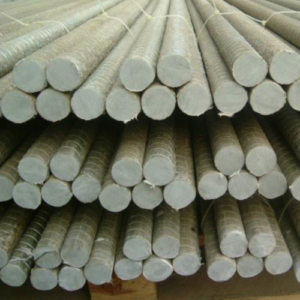When it comes to construction, steel has been the primary reinforcement material for decades. However, in recent years, fiberglass rebar has gained popularity as a viable alternative due to its numerous benefits over traditional steel reinforcement.

owens corning fiberglass rebar
One of the leading manufacturers of fiberglass rebar is Owens Corning, a global company with over 80 years of experience in the composites industry. In this article, Unicomposite pultruded profiles will compare Owens Corning fiberglass rebar to traditional steel reinforcement and explore the advantages and disadvantages of using each material.
What is Owens Corning Fiberglass Rebar?
Owens Corning fiberglass rebar is made of glass fibers and a resin binder, making it a composite material. It is lightweight, yet incredibly strong and durable, with a tensile strength up to four times that of steel. Fiberglass rebar is resistant to corrosion, making it an ideal material for structures in harsh environments, such as marine applications or chemical plants.
Advantages of Owens Corning Fiberglass Rebar
Corrosion Resistance
Unlike steel, fiberglass rebar does not rust or corrode when exposed to harsh environments, making it ideal for structures built in coastal areas or chemical plants.
Lightweight
Fiberglass rebar is lightweight, making it easier to transport, handle and install than traditional steel reinforcement. It also reduces the overall weight of the structure, making it ideal for buildings or structures where weight is a concern.
High Strength
Fiberglass rebar has a tensile strength that is up to four times stronger than steel reinforcement. This means that less material is required to achieve the same strength, reducing costs and increasing efficiency.
Electrical Insulator
Fiberglass rebar is an excellent electrical insulator, making it ideal for structures that require non-conductive reinforcement, such as bridges or electrical installations.
Non-Magnetic
Fiberglass rebar is non-magnetic, making it an ideal material for structures that require non-magnetic reinforcement, such as MRI rooms or scientific research facilities.
Disadvantages of Owens Corning Fiberglass Rebar
Cost
Fiberglass rebar can be more expensive than traditional steel reinforcement. However, the increased lifespan and durability of fiberglass rebar can offset the initial cost over the life of the structure.
Limited Availability
While the popularity of fiberglass rebar is growing, it may not be as readily available as traditional steel reinforcement in all areas.
Installation
The installation of fiberglass rebar may require specialized tools and expertise, which can increase installation costs.
Advantages of Traditional Steel Reinforcement
Availability
Steel reinforcement is readily available in most areas and can be sourced from a variety of suppliers.
Cost
Steel reinforcement is generally less expensive than fiberglass rebar.
Installation
The installation of steel reinforcement is relatively straightforward and can be done using standard construction tools.
Disadvantages of Traditional Steel Reinforcement
Corrosion
Steel reinforcement is prone to rust and corrosion, which can weaken the structure over time and require costly repairs.
Weight
Steel reinforcement is heavier than fiberglass rebar, making it more challenging to transport and install.
Conductivity
Steel reinforcement is conductive, making it unsuitable for structures that require non-conductive reinforcement, such as bridges or electrical installations.
Conclusion
In conclusion, Owens Corning fiberglass rebar offers numerous advantages over traditional steel reinforcement. While it may be more expensive, the increased lifespan and durability of fiberglass rebar can offset the initial cost over the life of the structure. Fiberglass rebar is also lightweight, resistant to corrosion, an excellent electrical insulator, and non-magnetic, making it ideal for a wide range of applications.




























